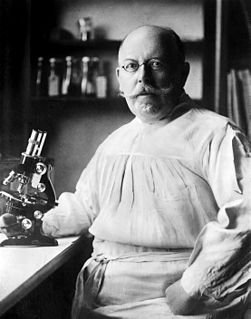A Quote by Herbert M. Shelton
The so-called symptoms of disease are manifestations of an inherent principle of the organism to restore healthy function and to resist offending agents and influences.
Related Quotes
The symptoms or the sufferings generally considered to be inevitable and incident to the disease are very often not symptoms of the disease at all, but of something quite different-of the want of fresh air, or of light, or of warmth, or of quiet, or of cleanliness, or of punctuality and care in the administration of diet, of each or of all of these.
If diphtheria is a disease caused by a microorganism, it is essential that three postulates be fulfilled. The fulfilment of these postulates is necessary in order to demonstrate strictly the parasitic nature of a disease:
1) The organism must be shown to be constantly present in characteristic form and arrangement in the diseased tissue.
2) The organism which, from its behaviour appears to be responsible for the disease, must be isolated and grown in pure culture.
3) The pure culture must be shown to induce the disease experimentally.
An early statement of Koch's postulates.
When a patient tells a doctor that every symptom is the most horrible ever - and the physical exam and labs are normal - we often suspect something psychological is going on. The symptoms aren't fake. They're physical manifestations of anxiety, depression, and stress. So while I'm always on the lookout for a serious underlying disease.
We have a dysfunctional dream of the planet, and humans are mentally sick with a disease called fear. The symptoms of the disease are all the emotions that make humans suffer: anger, hate, sadness, envy, and betrayal. When the fear is too great, the reasoning mind begins to fail, and we call this mental illness.
A doctor is not criticized for describing the manifestations and symptoms of an illness, even though the symptoms may be disgusting. I feel that a writer has the right to the same freedom In fact, I think that the time has come for the line between literature and science, a purely arbitrary line, to be erased.
In 1494, King Charles VIII of France invaded Italy. Within months, his army collapsed and fled. It was routed not by the Italian army but by a microbe. A mysterious new disease spread through sex killed many of Charles’s soldiers and left survivors weak and disfigured. French soldiers spread the disease across much of Europe, and then it moved into Africa and Asia. Many called it the French disease. The French called it the Italian disease. Arabs called it the Christian disease. Today, it is called syphilis.



































